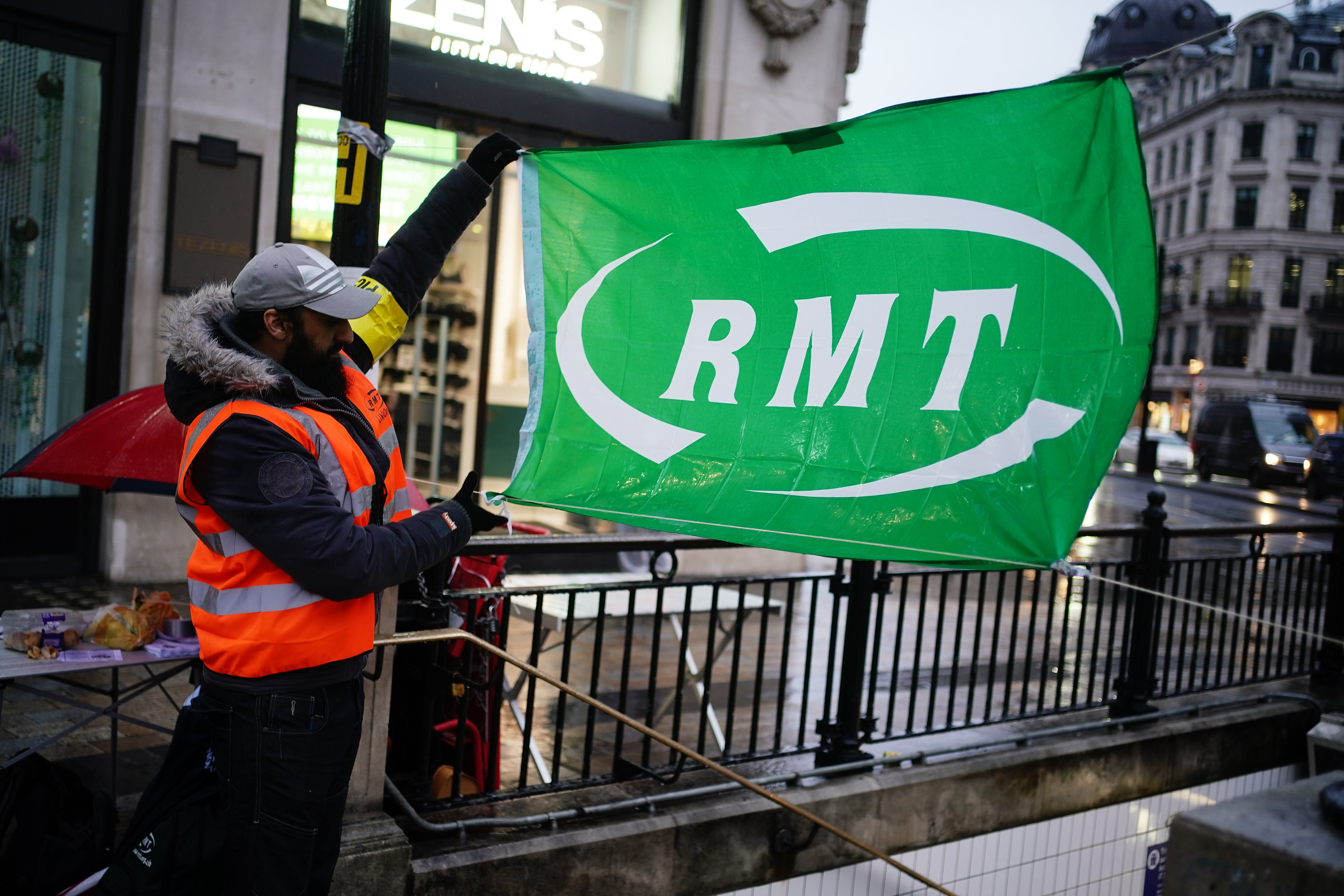Rail union plans for largest industrial action in decades
Strikes are scheduled to coincide with a number of major events, including concerts, test match cricket and the Glastonbury festival.

Your support helps us to tell the story
From reproductive rights to climate change to Big Tech, The Independent is on the ground when the story is developing. Whether it's investigating the financials of Elon Musk's pro-Trump PAC or producing our latest documentary, 'The A Word', which shines a light on the American women fighting for reproductive rights, we know how important it is to parse out the facts from the messaging.
At such a critical moment in US history, we need reporters on the ground. Your donation allows us to keep sending journalists to speak to both sides of the story.
The Independent is trusted by Americans across the entire political spectrum. And unlike many other quality news outlets, we choose not to lock Americans out of our reporting and analysis with paywalls. We believe quality journalism should be available to everyone, paid for by those who can afford it.
Your support makes all the difference.Glastonbury festival-goers and cricket fans face travel chaos later this month as thousands of railway workers take part in three days of strikes.
Members of the Rail, Maritime and Transport union (RMT) at Network Rail and 13 train operators will walk out on June 21, 23 and 25, in the biggest outbreak of industrial action in the industry in a generation.
The RMT also announced another 24-hour strike on London Underground on June 21 in a separate row over jobs and pensions.
The strikes threaten widespread travel disruption during a number of major events, including concerts, test match cricket and the Glastonbury festival.
Glastonbury starts on June 22, while that week will also see England play New Zealand in a test match in Leeds, the British athletics championships in Manchester, and gigs in London’s Hyde Park by Sir Elton John (June 24) and The Rolling Stones (June 25).
There will also be a Commonwealth Heads of Government meeting in London on June 24 and 25 and it is Armed Forces Day on June 25.
The union said it will be the biggest strike on the railways since 1989.
Union members voted overwhelmingly for action last month in growing rows over pay and job losses.
The RMT said rail staff who worked through the pandemic were facing pay freezes and hundreds of job cuts.
RMT general secretary Mick Lynch said: “Railway workers have been treated appallingly and despite our best efforts in negotiations, the rail industry with the support of the government has failed to take their concerns seriously.
“We have a cost-of-living crisis, and it is unacceptable for railway workers to either lose their jobs or face another year of a pay freeze when inflation is at 11.1% and rising.
“Our union will now embark on a sustained campaign of industrial action which will shut down the railway system.”
We have a cost-of-living crisis, and it is unacceptable for railway workers to either lose their jobs or face another year of a pay freeze when inflation is at 11.1% and rising
Mr Lynch added that the union was “open to meaningful negotiations with rail bosses and ministers, but they will need to come up with new proposals to prevent months of disruption on our railways”.
The union said more than 50,000 railway workers will walk out on June 21, adding that the action will affect the national railway network for the entire week.
Andrew Haines, Network Rail’s chief executive, said the organisation was “doing everything we can” to avoid the strike action.
“There are two weeks until the first strike is planned. We will use this time to keep talking to our unions and, through compromise and common sense on both sides, we hope to find a solution and avoid the damage that strike action would cause all involved,” he said.
There are two weeks until the first strike is planned. We will use this time to keep talking to our unions and, through compromise and common sense on both sides
Transport Secretary Grant Shapps described the move as “incredibly disappointing”.
“The pandemic has changed travel habits – with 25% fewer ticket sales and the taxpayer stepping in to keep the railways running at a cost of £16 billion, equivalent to £600 per household. We must act now to put the industry on a sustainable footing,” he said.
“We are working with industry to reduce disruption caused by strike action, but unions are jumping the gun by announcing this when talks have only just begun.”
Rail Delivery Group Chairman Steve Montgomery said the strikes were “needless and damaging”.
Anthony Smith, chief executive of the watchdog Transport Focus, said: “It is crucial that all parties get back around the table and resolve this matter without bringing the railway to a standstill.
“It is passengers who suffer most in the event of strikes. Passengers will need plenty of advance information about the strikes and what services will be running to allow them to plan their journeys during this uncertain time.”